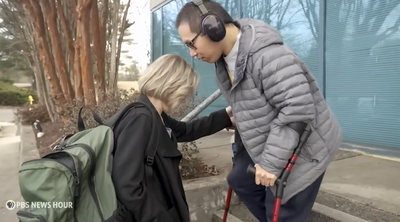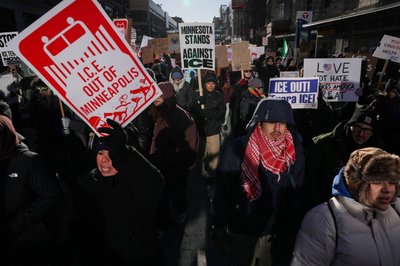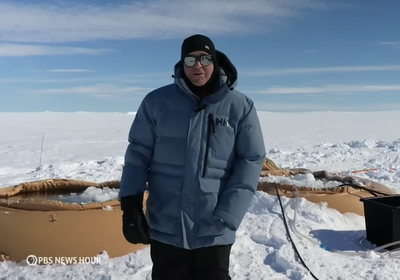For a google doc version of this activity,
click here
.
Overview
Hear from Nobel Peace Prize winner Maria Ressa about threats to press freedoms around the world, and then explore trends in press freedoms including concerns about freedom within the United States.
Warm up activity
Watch the video above and read the following facts about Maria Ressa and her arrest in the Philippines in 2020.
On June 15, 2020 one of the Philippines' most prominent journalists, Maria Ressa, was convicted of "cyber libel" by a Philippines court. Ressa continued to face a number of cases related to her journalism throughout 2020–2021. Advocates for press freedom have condemned her conviction as unfair and part of a larger crackdown by President Rodrigo Duterte on critical news media.
-
President Duterte’s administration has been responsible for attacks on Supreme Court Chief Justice and prominent legislatures, as well as for the war on drugs condemned by the U.N. for killing tens of thousands. Ressa says these crackdowns began with the weaponization of social media in 2016.
-
President Duterte and his allies defend his actions by claiming there is rampant crime to control in the Philippines and by pointing to a commission to investigate murders against journalists. However, according to Ressa, the administration has a history of lies and political impunity for governmental crimes.
-
Ressa says that press freedoms on a global scale are decreasing because of changes to the information ecosystem from technology and social media, which is being exploited by despots for political oppression.
-
In 2020, the U.S. was ranked the 45th nation in the world for press freedom by Reporters without Borders—a downgrade attributed to U.S.
“
arrests, physical assaults, public denigration and the harassment of journalists”
in recent years. In 2021, that rank rose to 44, but Reporters Without Borders notes that "Donald Trump’s final year in the White House was marked by a record number of assaults against journalists (around 400) and arrests of members of the media (130)" according to the
Press Freedom Tracker
.
Discussion the following questions:
-
Why is freedom of the press important? How could we ensure it is protected from corrupt political or legal attacks?
-
How has social media changed the “information landscape?”
-
Do you think that social media companies should be responsible for regulating the truthfulness of information dispersed on their platforms? Why or why not?
Main activity
Read the following material and answer questions about press freedom around the globe and in the U.S. Once everyone has had a chance to read and record answers, discuss as a class.
-
Read through the
2021 World Press Freedom Index compiled by
Reporters Without Borders
. Then answer the following questions.
-
What trends in press freedom did you notice from 2021?
-
What stood out as most concerning in this report?
-
Read through the first page or two of the U.S. Press Freedom Tracker and answer the following question.
-
What incident mentioned here seemed most troublesome for freedom of the press in the U.S.? What new policy or civic action do you think could help address the issue?
This activity was adapted from a lesson written by Classroom's former intern Carolyn McCusker, a graduate of Amherst College.





